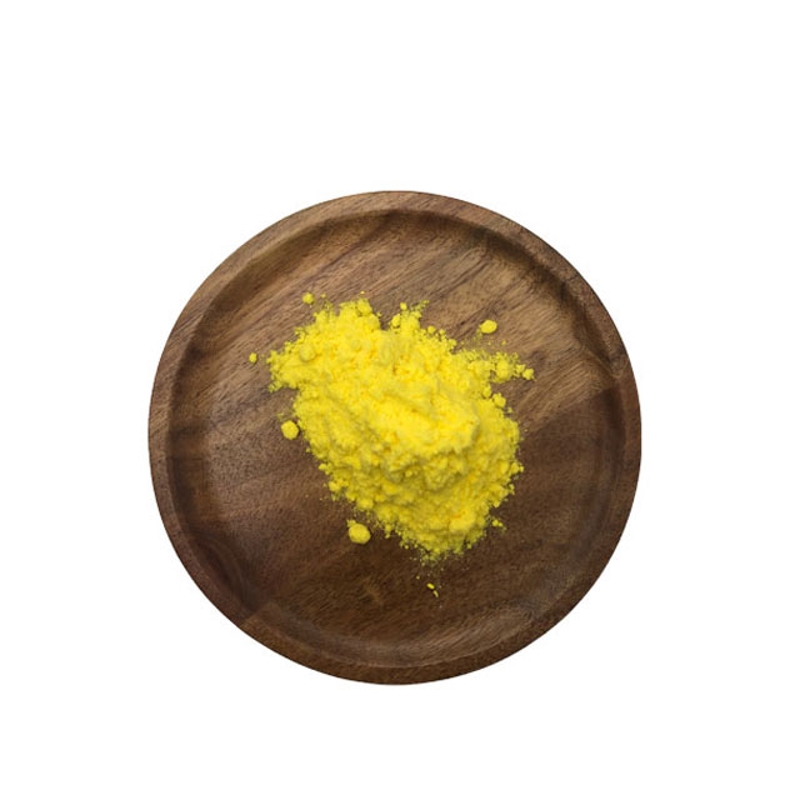-
Categories
-
Pharmaceutical Intermediates
-
Active Pharmaceutical Ingredients
-
Food Additives
- Industrial Coatings
- Agrochemicals
- Dyes and Pigments
- Surfactant
- Flavors and Fragrances
- Chemical Reagents
- Catalyst and Auxiliary
- Natural Products
- Inorganic Chemistry
-
Organic Chemistry
-
Biochemical Engineering
- Analytical Chemistry
- Cosmetic Ingredient
-
Pharmaceutical Intermediates
Promotion
ECHEMI Mall
Wholesale
Weekly Price
Exhibition
News
-
Trade Service
Introduction Renal cancer is one of the three most common urinary system tumors in China, and the incidence in China is increasing year by year
.
In recent years, there have been many large-scale clinical studies of immune combined with targeted drugs for first-line treatment of advanced renal cancer, which has affected the pattern of renal cancer treatment
.
During the 2022 Chinese Society of Clinical Oncology (CSCO) guideline meeting, Yimaitong interviewed Professor Sheng Xinan from Peking University Cancer Hospital to explain the current situation and future of systemic treatment for kidney cancer patients
.
Professor Sheng Xinan, Chief Physician, Doctoral Supervisor, Deputy Director, Department of Urological Oncology, Peking University Cancer Hospital, Director of the Chinese Society of Clinical Oncology (CSCO), Member of the Standing Committee of the CSCO Young Expert Committee, Secretary of the CSCO Kidney Cancer Expert Committee Executive Director Member of the Kidney Cancer Group of the Urological Oncology Special Committee of the Chinese Anti-Cancer Association Member of the Oncology Group of the Chinese Medical Association Urological Division Youth Committee Deputy Head of the Oncology Group of the Beijing Anti-Cancer Association Urogenital Oncology Special Committee Chairman of the Youth Committee of the Beijing Medical Association Oncology Yimaitong, Member of the Standing Committee of the Branch: The epidemiological data of renal cell carcinoma are different in different parts of the world
.
The incidence of renal cell carcinoma in China is lower than that in western countries, and the detection rate of early renal cell carcinoma in China has been significantly improved compared with the past, which directly affects the treatment of patients
.
Could you please talk about the current status of diagnosis and treatment of kidney cancer patients in my country? And how to improve the detection rate of early kidney cancer patients? Professor Sheng Xinan: Although the overall incidence of kidney cancer in China is relatively low, due to the huge population base in China, the number of new cases of kidney cancer ranks first in the world
.
The latest data released by the National Cancer Center shows that the number of new cases of kidney cancer in China has exceeded 60,000 each year
.
In the past decade, the diagnosis and screening of kidney cancer has been dominated by early detection
.
In the past, kidney cancer patients were detected by the traditional "triad" of kidney cancer (hematuria, waist mass and low back pain).
Now kidney cancer is mostly detected by physical examination.
Only 10%-20% of patients have clinical symptoms such as low back pain or hematuria.
.
At present, the clinically discovered tumors are mainly T1 stage, and T2\T3 stage tumors are rarer than in the past.
Therefore, the overall prognosis and median recurrence time of patients have been significantly improved.
The 5-year survival rate of renal cancer patients has exceeded 90%.
%, and the 5-year survival rate of T1 patients is even more than 95%
.
The increase in the early detection rate of renal cancer benefits from the popularization of the concept of physical examination in China
.
In addition, the simple and easy examination methods such as B-ultrasound have also greatly advanced the initial diagnosis time of kidney cancer patients
.
At present, the median age of onset of kidney cancer patients is about 65 years old.
Considering that the medical examination time for 60-year-old people in China is not fixed after retirement, more attention should be paid to this group of people, and regular physical examinations should be urged to facilitate the early diagnosis and early screening of kidney cancer
.
In recent years, the treatment of renal cancer is mainly nephrectomy after early detection
.
Domestic nephrectomy is widely carried out, and the overall cure rate of patients continues to improve, but there are still some high-risk patients with recurrence and metastasis, and the follow-up treatment of these patients has become a difficult point in clinical work
.
However, due to the application of immune combined with targeted therapy, the overall prognosis of patients with advanced or high-risk renal cancer has also been greatly improved compared with a decade ago
.
The results of a retrospective study on first-line treatment of patients with advanced renal cancer jointly conducted by Peking University First Hospital, Fudan University Affiliated Cancer Hospital and Peking University Cancer Hospital 5 years ago showed that the median survival time of most patients was 20- 24 months, basically reflecting the diagnosis and treatment status of kidney cancer patients ten years ago
.
The new research data shows that the proportion of patients who have been treated for a long time, especially those who have been treated for 3-5 years, has increased significantly, which also reflects that the prognosis of patients with advanced renal cancer has also improved and improved
.
Yi Mai Tong: The new CCSO guidelines for the diagnosis and treatment of kidney cancer will be released in 2022.
In the systemic treatment of kidney cancer patients, what are the update points that deserve our attention? Professor Sheng Xinan: The 2022 edition of the CSCO Kidney Cancer Diagnosis and Treatment Guidelines is expected to be released at the CSCO Guidelines Conference in September this year
.
The systemic treatment of kidney cancer mainly focuses on three aspects
.
1.
Treatment of renal clear cell carcinoma In recent years, renal clear cell carcinoma has developed rapidly.
The data of many large-scale studies have been reflected in the 2021 version of the guideline.
The update of the 2022 version of the guideline is to further refine the treatment plan
.
By refining the treatment plan, choose the appropriate treatment plan for the patient and improve the patient's curative effect
.
Second, the treatment of renal non-clear cell carcinoma This year's new WHO classification of renal cancer will affect the diagnosis and treatment of renal cancer
.
The diagnosis and classification of non-clear cell carcinomas in the diagnosis and treatment guidelines are mostly based on molecular markers, such as TFE-3 gene fusion-related renal carcinoma (previously Xp11.
2 translocation renal carcinoma), FH-deficient renal carcinoma (previously hereditary smooth muscle carcinoma) There is no high-level evidence-based medical basis for the treatment of these types of renal cancer
.
The guidelines put forward some guiding recommendations for this type of non-clear cell renal cell carcinoma represented by molecular markers, rather than blindly following the previous treatment regimen for non-clear cell renal cell carcinoma
.
3.
Adjuvant therapy At present, there is some evidence-based evidence on adjuvant therapy for renal cancer, which needs to be further considered by the expert group before it can be implemented into clinical application
.
At the same time, the guideline expert group also needs to further evaluate and refine the indications of adjuvant therapy and the pros and cons of adverse events
.
In addition, the guidelines will separately describe in detail the treatment of previously refractory renal cancer, tumor thrombus, and non-clear cell carcinoma subtypes
.
These are worthy of our further attention
.
Yimaitong: At the ASCO-GU conference some time ago, the research data of many immune combined targeted drugs in the treatment of renal cancer was updated.
Please talk about the role of immunotherapy in the treatment of patients with renal cancer and your prospects for the application of immunotherapy.
view
.
Professor Sheng Xinan: Immunotherapy has brought great innovation to the treatment of solid tumors.
Renal cancer is a tumor sensitive to immunotherapy.
In the drug treatment of advanced renal cancer, immunotherapy has an overwhelming advantage
.
Since the success of PD-1 monoclonal antibody in the second-line treatment of advanced renal cancer in 2015, 6 large-scale randomized controlled clinical studies have been carried out in recent years.
These clinical trials comparing immune combined targeted therapy with traditional targeted drugs , obtained positive results
.
In the treatment of clear cell renal cell carcinoma, clinicians can actively try immunotherapy
.
Although the efficacy of immunotherapy on non-clear cell renal cell carcinoma is not as ideal as that in renal clear cell carcinoma, its efficacy on different subtypes of renal non-clear cell carcinoma can be further explored in clinical practice, but it is difficult to achieve the same effect as renal clear cell carcinoma
.
The previous first-line treatment regimens in China are mainly targeted drugs, and immunotherapy plays an important role in the second-line treatment.
Patients who have not received immunotherapy can try the combination of immunotherapy and targeted therapy in the second-line treatment
.
In the postoperative adjuvant treatment of high-risk patients with T3-T4 stage, lymph node metastasis or metastatic resection, immunotherapy has obtained evidence-based medical evidence, so immunotherapy also has clear advantages in postoperative adjuvant treatment of high-risk patients
.
In general, immune or immune-combined targeted therapy can be actively tried in the treatment of patients with advanced renal cancer, and certain achievements have been made in the postoperative adjuvant therapy of high-risk patients, but there is still room for exploration and breakthroughs in neoadjuvant therapy
.
Typesetting: LR Reviewer: Prof.
Sheng Xinan Executive: Uni







